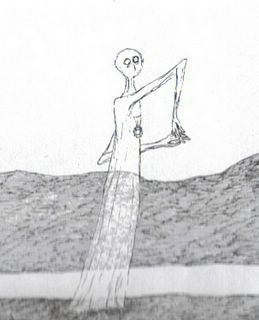The readings that I have included give a variety of different "takes" on how television has impacted society. I love this segment because it is a great overview of the research that has been done on the effects of television on society. The author, Conrad Kottak, is a professor of anthropology at University of Michigan, (or was when the book was published.) His book is a study of the viewing habits of Americans as compared to those of television watchers in Brazil.
Kottak, Conrad Phillip. PRIME-TIME SOCIETY: AN ANTHROPOLOGICAL ANALYSIS OF TELEVISION AND CULTURE. Belmont, CA: Wadsorth Publishing Company, 1990. Pg 10.
"Many researchers have commented on television’s impact on contemporary society. Comstock and colleagues (1978) see television as a major socializing agent competing with family, school, peers, community, and church. Gerbner (1967) likens television to a new religion, cultivating a homogeneous outlook on social reality, uniting the population exposed to it in a common set of images and symbols. Hirsch (1979) underscores television’s role in focusing attention on national events. Lazarsfeld and Merton (1971) label television "narcoticizing." They fault it for diverting attention from serious issues and for replacing effective thought and action with passive absorption in portrayals. Some researchers have argued that television reinforces the existing hierarchy and impedes social reform by portraying so many wealthy and powerful people (Gerbner and Gross 1976a, 1976b). Television executives have become "key gatekeepers," regulating public access to information (Saldich 1979:22). Historically, political and religious leaders have played this role. Television also contributes to consumerism. It stimulates participation in a worldwide cash economy (Hujanen 1976). Television sets agendas, directing our attention toward some things and away from others (Gerbner and Gross 1976a; Hood 1987:10-15). Although television may not tell us what to think, it is very successful in telling us what to think about (Comstock et al. 1978).
TV’s worldwide spread has raised concerns about cultural imperialism. For example, French Minister of Culture Jack Lang has lamented the extent to which American programs (purportedly) dominate the airwaves in many countries. He has decried an "intellectual imperialism" that "grabs consciousness, ways of thinking, ways of living" (Gutis 1987). Many political and cultural leaders react similarly, although others see television’s global role more positively. Ignatieff, for example, calls television "the privileged medium through which moral relations between strangers are mediated in the modern world" (Bernikow 1986). It promotes
'the breakdown of the barriers of citizenship, religion, race, and geography that once divided our moral space...Television has become the instrument of a new kind of politics, one that takes the world rather than the nation as its political space, and that takes the human species itself rather than specific citizenship or racial, religious, or ethnic groups as its object.' (Bernikow 1986:6)"
In you own life, has television exposed you to ideas, cultures, or beliefs that you would never have encountered in any other medium? Do you feel that television influences what you think about? Do you believe that society shapes the programming on television or is it the networks, programmers, and producers that decide what society will find important and interesting?
